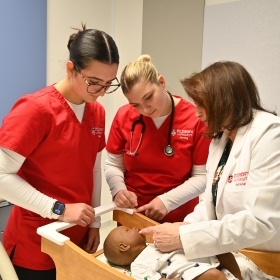How to Stand Out in College Applications and Impress Admissions Officers

When it comes to college applications, there’s a common myth the more extracurricular activities you list, the better. Maybe you’ve heard you need to be in every club, volunteer at every opportunity, and take on as many leadership roles as possible to impress admissions officers. But here’s the truth: colleges don’t want to see a long list of random activities—they want to see meaningful commitment.
Admissions officers are looking for students who have depth in their experiences, not just breadth. It’s not about how many clubs you joined or how many volunteer hours you logged, it’s about how you engaged, grew, and made an impact. So, how do you build a strong application that actually stands out? Let’s break it down.
Focus on Extracurricular Activities You Actually Care About
Instead of signing up for every extracurricular activity, think about what excites you. What do you love doing in your free time? What issues matter to you? What hobbies or skills have you stuck with over time?
Colleges don’t just want to see participation—they want to see progress and passion. If you’re truly interested in something, it’ll show in your application, essays, and even in your interviews.
Consider these two students:
Student A:
Joins 10 clubs, attends meetings occasionally, but doesn’t take on any leadership roles or projects.
Student B:
Joins one or two clubs, sticks with them for years, takes on leadership roles, and helps launch a new initiative.
Admissions officers will be far more impressed by Student B because their involvement shows commitment and growth.
Tip: If you’re not sure where to start, think about what you already enjoy doing and how you can expand on it in a structured way.
This same principle applies when choosing who will write your letters of recommendation. The best recommendations come from people who truly know you—teachers, mentors, or supervisors who can speak to your dedication, leadership, and character. A generic letter from a well-known teacher won’t be as impactful as one from someone who has seen your growth firsthand. Here’s why recommendation letters matter and how to get the best possible ones.
Highlight Your Interests and Activities in Your Personal Essay
Your extracurriculars should tell a story about who you are and what you care about. Instead of treating them as separate, disconnected activities, think about how they connect to each other and to your future goals.
For example:
- If you love writing, you could be part of the school newspaper, start a blog, and submit work to writing competitions.
- If you’re interested in medicine, you could volunteer at a hospital, join a health-related club, and take on a research project.
- If you’re into coding, you could participate in hackathons, build an app for a local nonprofit, or tutor younger students in programming.
Admissions officers love seeing a clear and authentic interest that’s been developed over time.
Tip: If you’re doing something just because you think it “looks good,” it probably won’t make a strong impact. Instead, focus on what genuinely interests you.
This same mindset applies when writing your personal essay. Just like your extracurriculars, your essay should highlight your authentic interests and experiences, not just what you think colleges want to hear. Instead of writing what sounds impressive, tell a compelling story about something that genuinely matters to you. Need help crafting your college essay? Check out these tips to make sure your application stands out.
Leadership Isn’t Just About Titles
You don’t need to be the president of every club to show leadership. Leadership is about taking initiative, making an impact, and creating opportunities for others.
Here’s what leadership can look like:
- Organizing an event for your club
- Starting a new project or program
- Mentoring younger students
- Advocating for change in your school or community
- Taking on responsibility in a job or volunteer role
A college admissions officer will be far more impressed by a student who saw a need and took action than by someone who simply held a title without contributing much.
Tip: If a club or activity isn’t giving you leadership opportunities, create your own. Pitch a new idea, take charge of a project, or offer to mentor new members.
Community Involvement Matters (If It’s Meaningful)
Volunteering can be an amazing way to make a difference and build experience, but it’s important to focus on quality over quantity. Instead of logging random hours at different places, think about how you can create a deeper impact.
For example:
- Instead of volunteering at a shelter once a year, you could commit to a weekly mentorship program for younger students.
- Instead of participating in a one-day fundraiser, you could help organize and lead an ongoing fundraising campaign.
Colleges love seeing students who stay committed to a cause and take action over time.
Tip: Think about what issues or causes matter to you and find ways to contribute meaningfully.
Many students also worry about common myths when it comes to getting accepted into college. Do test scores matter more than extracurriculars? Will a lower GPA ruin your chances? Here’s a look at some common admission myths to help you focus on what really makes an impact.
The Bottom Line: Show Depth, Not Just a Checklist
At the end of the day, admissions officers aren’t looking for a long list of superficial involvements. They want to see real commitment, growth, and passion. Instead of spreading yourself thin, focus on:
- Quality over quantity – Fewer, deeper involvements will always stand out more than a long, shallow list.
- Commitment over time – Colleges want to see long-term growth, not just last-minute résumé-padding.
- Leadership and initiative – Find ways to make an impact, even if you don’t have an official leadership title.
- A story that connects your activities – Your experiences should reflect your interests and values.
As you navigate the admissions process, it's also important to consider which college is the right fit for you. Beyond academics, factors like campus culture, financial aid, and career support can make a huge difference. Here are seven key factors to consider when choosing where you’ll thrive.
College applications aren’t just about listing what you’ve done—they’re about showing who you are. So choose what matters, go all in, and make it count. If you’re looking for a university that values meaningful commitment and personal growth, St. John’s University offers a supportive







